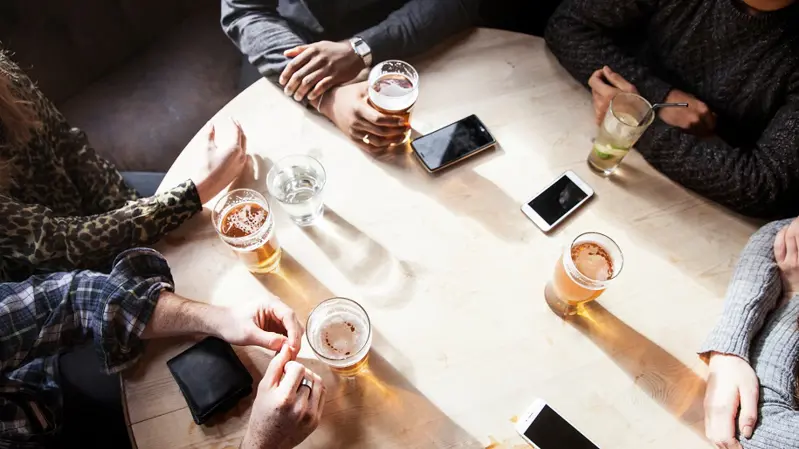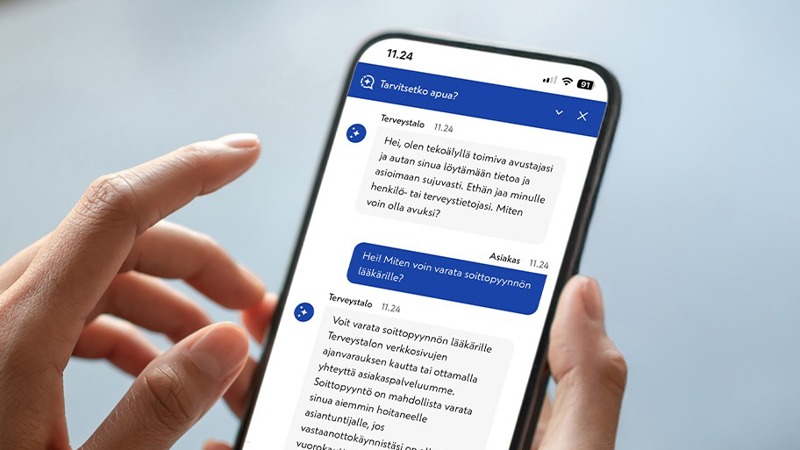Organization culture can contribute to substance abuse problems
The use of substances is not a new phenomenon, as throughout the ages people have been intrigued by changing everyday reality with various chemical substances. Majority of the working-age population uses intoxicants, but mainly for controlled and moderate recreational use, which does not cause significant problems. On the other hand, certain factors in working life also increase the risk of substance abuse. In this case, the organization culture is important: does the culture support recovery with non-intoxicating means and encourages sensitive handling of deviations, or does it perhaps feed possible substance abuse problems.

The risks of using substances are partly related to a hereditary predisposition, but the work environment can also increase the risks. Irregular working hours or work that requires travel is one of the risk factors in the work environment. Also in some cases the workload as a whole can be perceived as too high and intoxicants are then used to manage stress. Hard work - hard play is an established provebr, but "play" heavily fuelled with intoxicants does not offer recovery.
– In reality, intoxicants lower recovery and sleep quality, increase anxiety and depression, which in turn worsens work stress. Every leader should think about how the culture of their own organization guides recovery and de-stressing. Is it customary in the work community to balance everyday stress with afterwork and on Fridays to reset the work week with a intoxicant-saturated evening out, or does the organization culture support drug-free recovery methods, such as adequate night sleep and exercise, asks Terveystalo's occupational health doctor Matti Palomäki.
During the festive season, workplaces also often offer work-related events that expose to the use of intoxicants. Especially after such a longer period of avoiding gatherings, we embrace and need opportunities to meet coworkers in an informal setting, in which the party drinks quite often contain alcohol.
– As long as the limits of safe alcohol use are not exceeded, alcohol being a legal intoxicant and consumed in moderation, can indeed in accordance with its nickname, be a joy juice that creates a relaxed atmosphere. In addition, it would be good to always have a non-alcoholic option naturally available at workplace parties, and it should be part of the organization's culture that there is no pressure to use intoxicants. In an ideal situation, everyone is also aware of their own organization's substance abuse program, and possible excesses are dared to be dealt with sensitively, says Palomäki.
Supervisors have a responsible duty to raise suspicions of substance abuse. This is often difficult, which is why Terveystalo has developed a checklist to support supervisors. The list contains signals that can be noticed in a person struggling with substance abuse problems. With the help of the checklist, it is possible for the supervisor to make an overall assessment of the situation and take action.
– Sometimes the substance abuse problem can be overlooked for too long. Especially if the culture includes treating excesses as a joke and hiding work performance among co-workers for fear of being caught, so to speak. This is a disservice to the person with a substance abuse problem, because the sooner the matter is addressed, the less likely the problem will cause destruction to the individual and the work community. In this case, trust is emphasized in the culture - you have to dare to raise the matter as soon as the concern arises, says Palomäki.
Download the free checklist here
Please note that the early signals in the checklist can also indicate other health deterioration or stress related to work or leisure time. Although it is not necessarily a question of problematic use of substances, the list nevertheless gives certainty to talk with the employee about what the signals can tell.
Laters articles

What is metabolic age and why should you care about it?
A new laboratory study by Terveystalo reveals how your body is aging. Metabolic age makes biological aging visible.

Smooth assistance for your needs – our AI assistant is now at your service
You can now find Terveystalo’s AI assistant on our website — a quick and easy way to get answers based on the information available on our site. For now, the assistant is available only on the Finnish‑language section of our website, but you can chat with it in English.

How technology helps relieve mental stress: "When the load is high, the threshold must be low."
Mental health disorders have overtaken musculoskeletal disorders, which had long been the leading cause of sick leave. Work is changing, and the range of sick leave caused by mental health issues has also changed. We must be able to offer new solutions to this challenge.

Extensive data set of 200,000 samples: Nightingale study reveals link between illness risks and sick leave
Data from the Finnish Nightingale study, which is used in Terveystalo's occupational health services, reveals a clear link between lifestyle-related health risks and sick leave. The exceptionally extensive data set of over 200,000 customers shows that people with a low risk of illness had significantly fewer absences, while those in high-risk groups had more absences. The results highlight the importance of preventive healthcare in ensuring work ability and the competitiveness of companies.

Strong identification speeds up your service experience when calling us
Soon you can identify yourself easily and securely before your call is answered. Read below to see how the identification process works.

Terveystalo's digital services have been awarded the internationally recognized ISO27001 information security certification.
Terveystalo's information security practices, processes, and risk management are in line with international best practices.